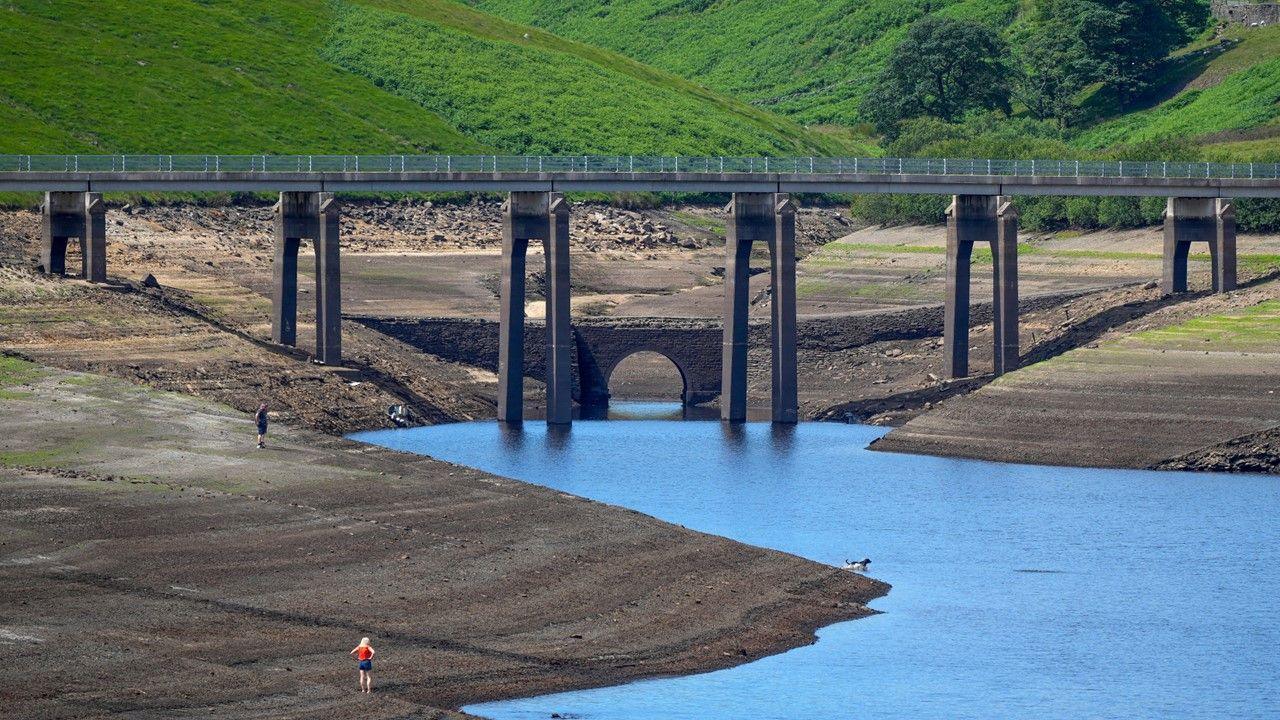How will hosepipe bans affect the South East?
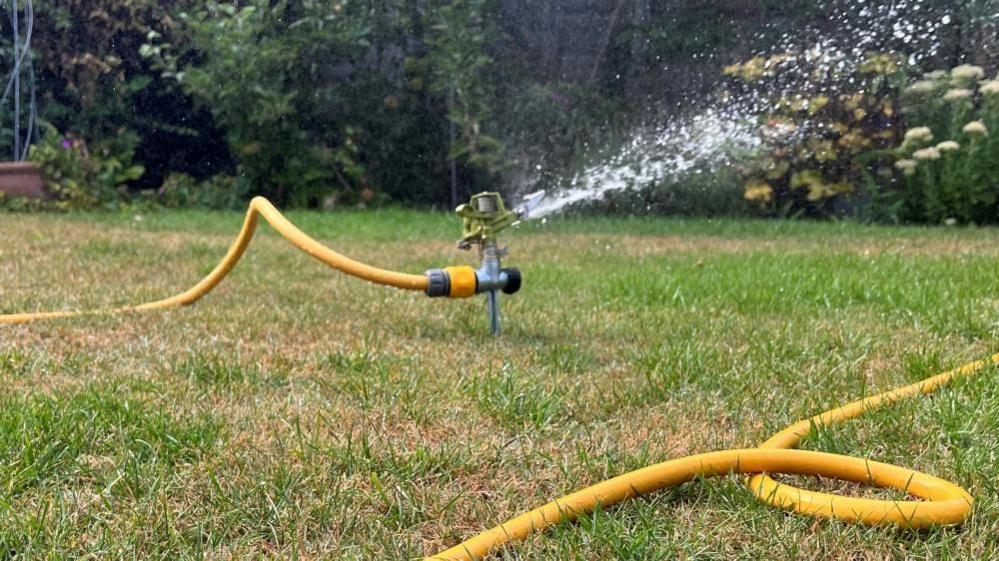
Anyone found breaking hosepipe restrictions could face a fine of £1,000
- Published
A ban on using hosepipes has been announced in South East England as more than 1.4 million people living in Kent and Sussex are due to be affected, with those in parts of Surrey being asked to conserve water.
Being enforced by South East Water from 18 July, it follows a ban from Yorkshire Water which began 11 July - the first of 2025 - with Thames Water planning a ban from 22 July.
It comes as the UK has experienced three heatwaves so far this year, with the BBC Weather Centre confirming 1 July as the hottest day of the year when 35.8C was recorded in Faversham, Kent.
With the heatwaves over and hosepipe bans coming into place, here is how they could affect you.
What is a hosepipe ban?
A hosepipe ban, also known as a Temporary Use Ban, is a restriction on using hosepipes imposed by water companies to try and save water during periods of high demand or low supply.
South East Water's ban means that people living in certain areas are not allowed to use a hosepipe to:
Water a garden or plants
Wash a car, patio or boat
Fill a swimming pool, paddling pool or hot tub
Maintain or fill a domestic pond or ornamental fountain
This is to ensure enough water is saved for drinking, for those who are vulnerable and for essential use.
Anyone breaking these rules could be fined up to £1,000.
Areas in the South East affected?
Areas in Kent and Sussex with hosepipe restrictions include:
Ashford (Kent)
Canterbury
Eastbourne
Haywards Heath
Heathfield
Maidstone
Sevenoaks
Tunbridge Wells
Uckfield
Whitstable
People in Farnham, Frimley and Camberley are also being asked to reduce their morning and evening water use to prevent low pressure issues at peak times.
On when the ban will be lifted, South East Water said: "It is likely that it will continue until we are confident that the demand for water has reduced back to manageable levels."
Southern Water, SES Water, and Affinity Water previously told the BBC they do not expect to introduce water use restrictions, such as hosepipe bans, in 2025.
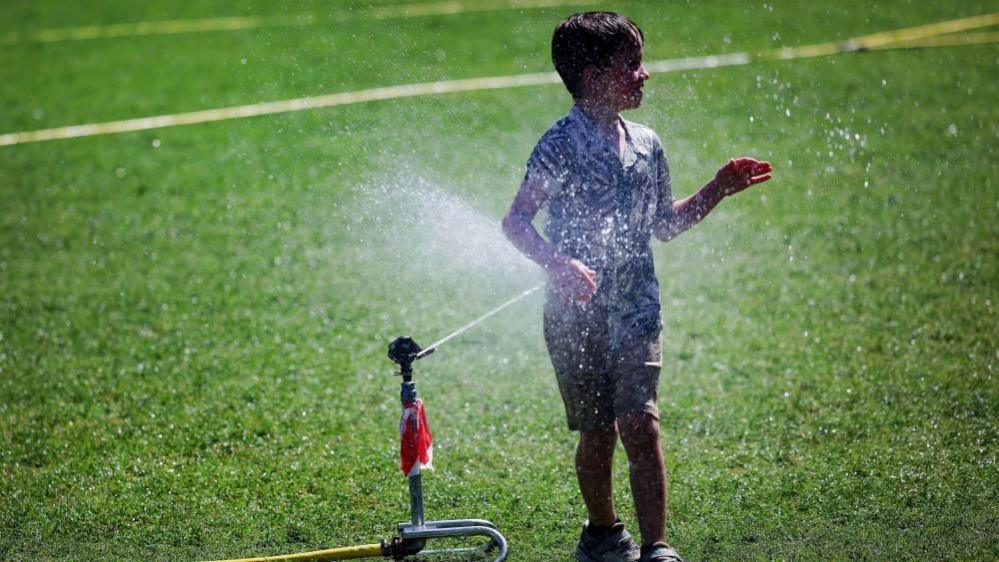
Spring in 2025 has become one of the UK's driest on record
Hosepipe exemptions?
South East Water says some exemptions apply for when hosepipes may be used:
To provide a service to customers, including for crop farming and car, boat or window washing businesses
When topping up a fishpond where the welfare of the fish depends on it
To fill pools needed for medical treatment
When watering a new lawn within 28 days of it being laid
To fill a fountain used for religious practices
When it is not connected to mains water, such as using a water butt
Why are hosepipe bans happening?
The South East, in addition to other areas across the UK, has experienced an extended period of warm and dry weather.
Spring in 2025 proved to be the second driest on record for England and the sixth overall across the UK.
New analysis shows that spring is the fastest-warming season in the United Kingdom largely down to climate change.
A report by Climate Central, external, a climate research organisation, has found that all four seasons are warming but at different rates.
An expert in Earth's water, Dr Jess Neumann from the University of Reading, says despite some recent heavy downpours, there has not been enough rain to compensate for recent heatwaves.
"Whilst groundwater levels are currently normal in the region, it takes much longer for rainfall to reach groundwater stores compared with rivers and reservoirs," Dr Neumann said.
The South East is largely reliant these groundwater sources rather than reservoirs.
South East Water said it saw the highest levels of water usage so far on 30 June, reaching 680 million litres - over 105 million litres of water a day more than the summer average.
The water provider says it is taking action to prevent its water stocks from depleting further, being concerned over the impact further extraction will have on the environment.
Follow BBC Sussex on Facebook, external, on X, external, and on Instagram, external. Send your story ideas to southeasttoday@bbc.co.uk , external or WhatsApp us on 08081 002250.
Related topics
Related internet links
- Published11 July
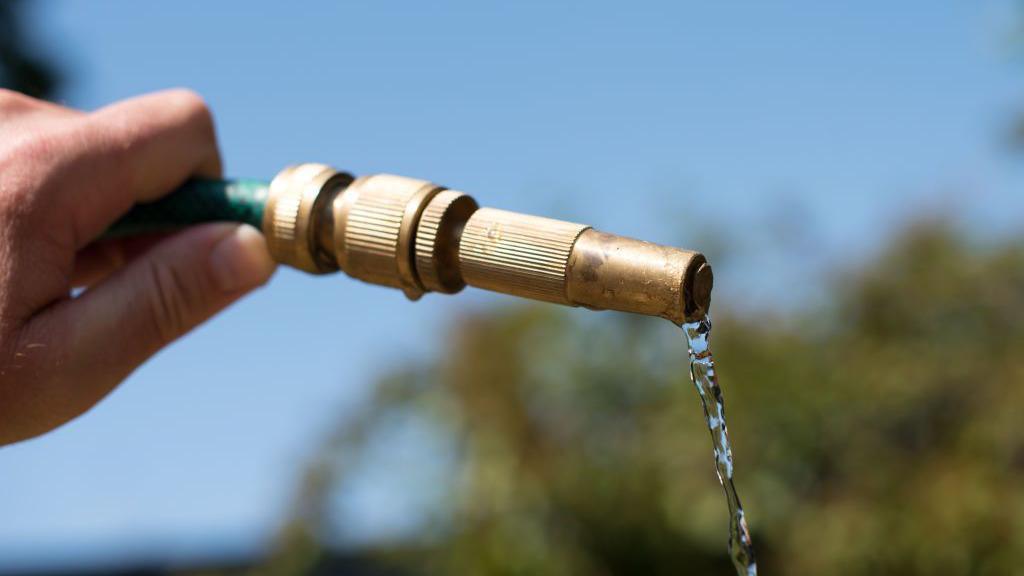
- Published18 May
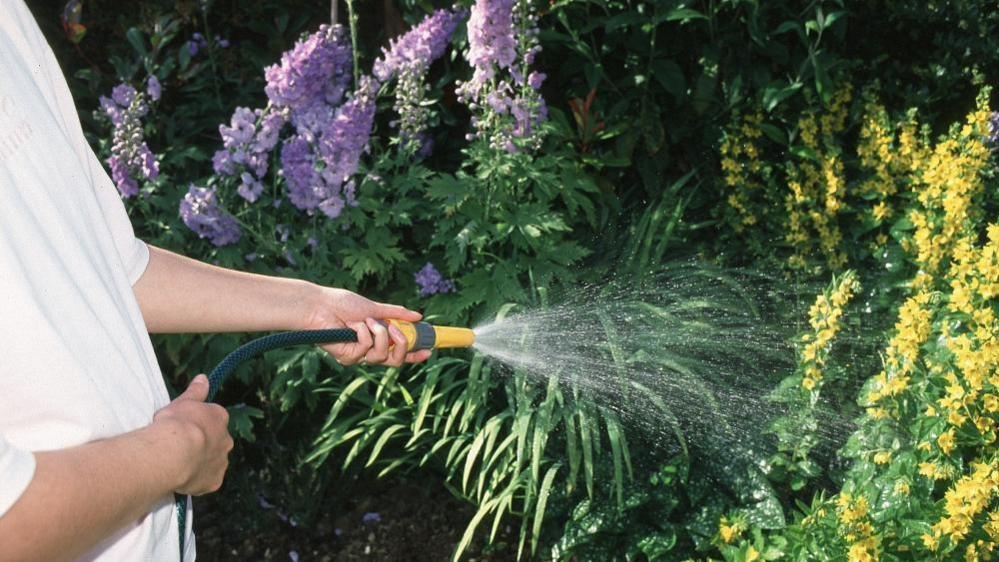
- Attribution
- Published15 July
